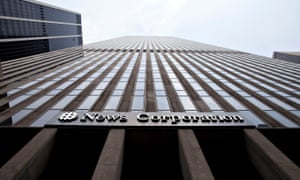The empowerment of audiences is considered in one stance
according to the access to variously ranging views and values. The extent to
which this ability is granted to UK audiences is a lot more debateable in
comparison to the Stalinist model of North Korea, which has its media strictly
limited to reinforcing only the views and ideologies of the dictating proletariat.
The UK is commonly determined the polar opposite of this, being regarded as a
population largely liberal in its ability to advocate and support ranging
views, a lot of which differ from those of the governing Conservative body. New
and digital media enables this output of pluralistic views on social media
networks, a profound one being Twitter, which generates discussion by the use
of tweets, mentions and the newly introduced ‘like’ system – indicative of
support for publicised information. Opinion leaders such as Owen Jones, who are
openly against the Marxist nature of the cooperation among leading governments
and the Murdoch controlled media, which statistics suggest influences around
50% of the total mainstream media in the UK. This indicates a disempowerment of
audiences in wholesome as half of the output is under regulation of the
governing state.
This is further justified by the Ipsos Morum poll of 2014
which finds the majority of Britain to be under the false impression that
socio-political moral panics are prevalent to a much larger extent than they
really are. Correlations between this and the hyperbolised representation of
these panics by the mainstream media are found as debates of false benefit
claim and the establishment of Islamic
beliefs in the UK are believed to be generally a lot more significant.
Ultimately, the hegemonic control of the media is suggested in a cynical nature
as it is found that the media defies its primitive role to inform audiences, as
they do in fact misinform them with false beliefs which fuel moral panics and
thus demonstrate a reinforcement of values advocated by the governing body,
hence disempowering a society which is made to merely believe they are under
pluralistic liberation as suggested by Rupert Murdoch's announcement insisting that "the internet has given readers much more power".
To a definitive measure, the internet continues to prove itself unsuccessful for audeience empowerment as Herman and McChesney state: "the egaliatarian potential of the technology is minimised" and instead, "global media firms (are) able to incorporate the internet and related computer networks into their empires". Such is evidently demonstrated by the wide internet-based digital technology market as institutional conglomerates such as Google and Facebook adopt smaller uprising companies.
 This opinionated article by Greenslade argues the viewpoint that audiences are more interested in terror attacks closer to home - a perspective resembling that of media critic Alain de Botton, who advocated the importance of empathy when consuming news.
This opinionated article by Greenslade argues the viewpoint that audiences are more interested in terror attacks closer to home - a perspective resembling that of media critic Alain de Botton, who advocated the importance of empathy when consuming news. 


